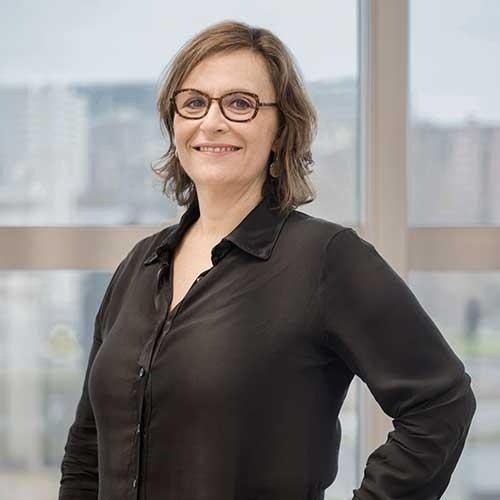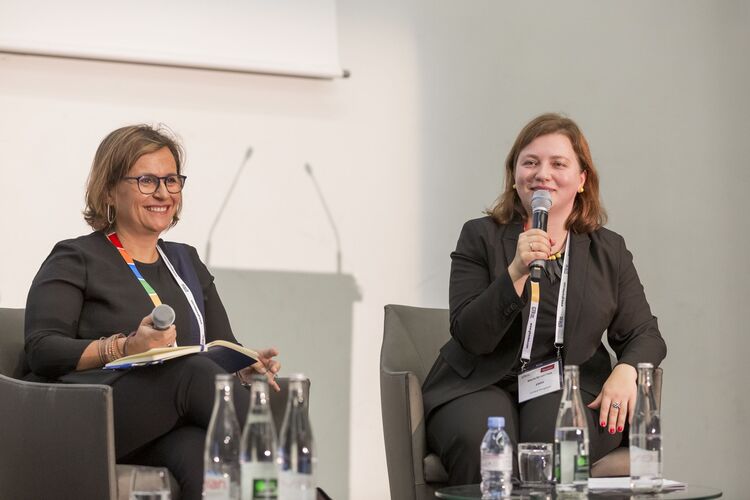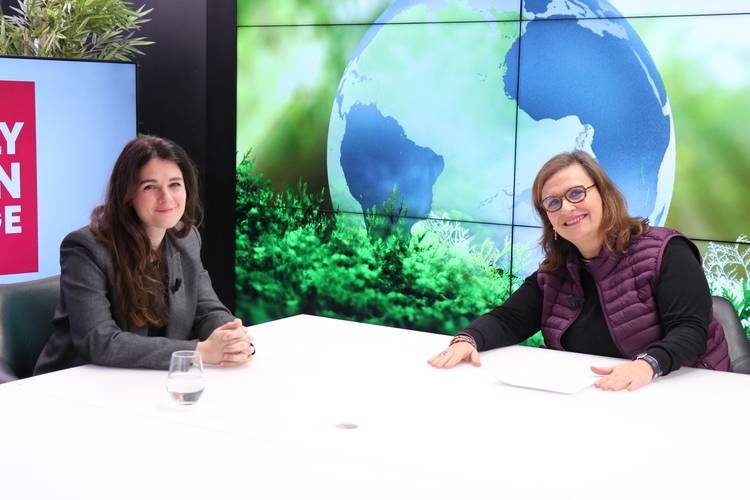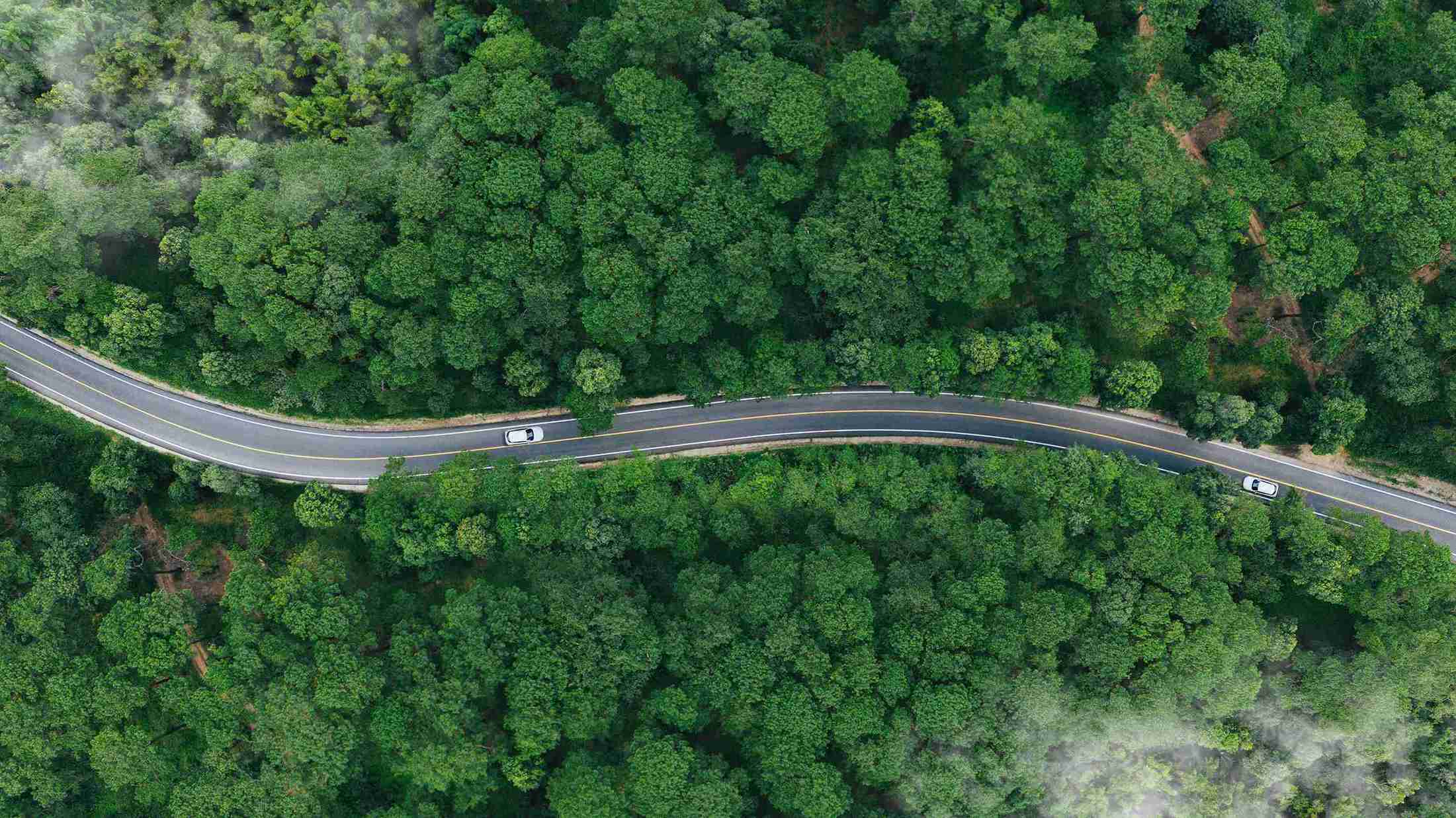Professor Valentina Carbone on why sustainability requires rethinking the very foundations of business education
Ten years after the launch of the United Nations Sustainable Development Goals, the question of what progress really means is back in the spotlight. A recent Nature editorial urged researchers to “end GDP mania” and help design new indicators of human and planetary prosperity that go beyond growth. Business schools, too, face an uncomfortable reckoning: are they truly preparing leaders to live and work within planetary limits?
Few are tackling that question as directly as Professor Valentina Carbone, Professor of Sustainability and Supply Chain Management and Scientific Director of the PhD Programme at ESCP Business School.
Valentina’s research critically examines how global value chains reproduce or can challenge environmental degradation and social injustice. In her latest reflection piece, “Practically Re-imagining Business Education for Sustainability”(European Management Journal, 2025), co-authored with Lucy McCarthy and Anne Touboulic, she invites fellow educators to pause and reconsider the foundations of business education itself, suggesting that business schools have a crucial role to play in enabling the profound transformation required in the face of accelerating socio-environmental degradation.
The illusion of progress
Asked how she would grade business schools on their readiness to meet the SDGs, Valentina doesn’t hesitate: “I would give them a C. Many have adopted the vocabulary and imagery of the SDGs, but too often it’s cosmetic, a branding exercise rather than a structural transformation.”
She suggests that part of the problem is structural as SDGs themselves are broad, uneven, and non-binding. “There have been many promises, but not many are on track. Some goals have advanced, such as access to basic services, others are definitely lagging behind, such as hunger and biodiversity integrity, and some even conflict: economic growth versus environmental protection, for example. The framework is inspiring in its harmonising effort, but realising its promises requires sharper priorities, context-based, and actionable levers for change.”
This coexistence of ambition and contradiction embodies what she describes as the “paradox of sustainability” in higher education:
We celebrate sustainability while leaving unexamined the assumptions on which our teaching rests.
 Valentina Carbone
Valentina CarboneProfessor of Sustainability and Supply Chain Management and Scientific Director of the PhD Programme at ESCP Business School.
Questioning the foundations
Valentina argues that the biggest misconception about sustainability in business schools is that it can be addressed by adding a few dedicated courses. “We often think that a class on ethics or climate change will be enough to steer the transformation,” she says. “But real change requires revisiting the foundations of business education itself.”
Her recent article identifies these foundations as the legacies of Western modernity: among them a worldview that treats nature as a set of resources to be controlled and managed, and positions humans as separate from the natural world. Here, she draws inspiration from the work of Philippe Descola and Bruno Latour, two French anthropologists and philosophers who questioned that very separation.
Descola’s research on Amazonian societies challenged the Western idea that only humans possess subjectivity. He showed that many cultures perceive continuity between humans, animals, and the environment, a “world of relationships” rather than domination. Latour extended that reasoning to modern science, arguing that the world is a web of connections between human and non-human actors: technologies, species, and environments that shape one another.
“For management education, this deep and often unquestioned assumption matters profoundly,” Valentina explains. “As long as we view the economy as separate from nature, sustainability will remain superficial. But once we understand that every decision is embedded in ecological and social systems, our sense of success can begin to move beyond growthism and short-term efficiency.”
 Professor Valentina Carbone speaking at GTR Europe 2019, where experts discussed Europe’s economic outlook, trade policy, and sustainability in global value chains.
Professor Valentina Carbone speaking at GTR Europe 2019, where experts discussed Europe’s economic outlook, trade policy, and sustainability in global value chains.From add-ons to transformation
In both her research and teaching, Valentina encourages students to question inherited hierarchies of knowledge:
“At the moment, we teach the logic of business first and only afterwards mention environmental or social issues. This approach is flawed. We should begin from the Doughnut Economics logic — the ecological ceilings that define planetary boundaries and the social foundations required for justice and well-being — and then ask how business can thrive within them.”
This inversion, she argues, does more than rearrange the syllabus. It redefines what counts as competence and leadership. “When you start from the limits, you teach creativity under constraint, collaboration instead of domination, long-term thinking instead of short-term gain. You’re training people to operate in a finite world.”
Principles for re-imagining business education
Valentina’s recent paper suggests several principles that could guide this transformation. The first is reflexivity: the willingness of educators to question their own assumptions, emotional reactions and teaching habits. “Transformation can feel overwhelming,” she says, “but reflection is something everyone can do. From there, small but meaningful changes ripple outward.”
A second principle is pluralism: exposing students to different ways of knowing and being.
Business education has long assumed the universality of Western economic logic. But there are many other traditions—indigenous, cooperative, community-based—that see prosperity as collective and relational. By engaging with them, we expand our imagination of what business can be.
 Valentina Carbone
Valentina CarboneProfessor of Sustainability and Supply Chain Management and Scientific Director of the PhD Programme at ESCP Business School.
A third is coherence between thought and practice. “We need to connect reflection to action—through project work, collaboration with local organisations, and direct engagement with ecological realities. Sustainability isn’t something to talk about in the abstract; it’s something to practice.”
These ideas are not just theoretical. At ESCP, Valentina is the scientific director of the PhD Programme which ensures that that emerging ESCP researchers understand the realities of operating within planetary limits and offers a specialised track in sustainability. Her classes integrate live projects and partnerships that bring students into contact with real-world sustainability challenges.
Learning from others
For Valentina, openness to dialogue extends beyond academia. She hosts a monthly French-language web show, Supply Chain Durable, dedicated to environmental issues in logistics and production, and she serves on the board of HOP – Halte à l’Obsolescence Programmée (Stop Planned Obsolescence), a French NGO that campaigns for more durable products and circular design.
 Professor Valentina Carbone with Clotilde Charaix, Transdev’s Director of Climate and Environmental Strategy, on Supply Chain Durable.
Professor Valentina Carbone with Clotilde Charaix, Transdev’s Director of Climate and Environmental Strategy, on Supply Chain Durable. In all of this, she insists on bridging reflection and activism. “Sustainability education isn’t neutral. It’s ethical, emotional and political. We have to acknowledge that the way we teach carries values and consequences.”
A message for the next generation
Asked what she wants her students to take away from their time at ESCP, Valentina doesn’t hesitate:
“Don’t try to be the best leader of the old world. Dare to challenge it. Co-build, with humility and solidarity, a new world where business thrives only within the limits of the planet and caring for people’s needs. Be conscious of inequality, and of the fragility that defines our shared space.”
For Valentina, sustainability is not an optional layer of ethics but a shift in consciousness. “We live in a finite world. Recognising that is not a constraint — it’s what allows us to create differently.”
Campus
